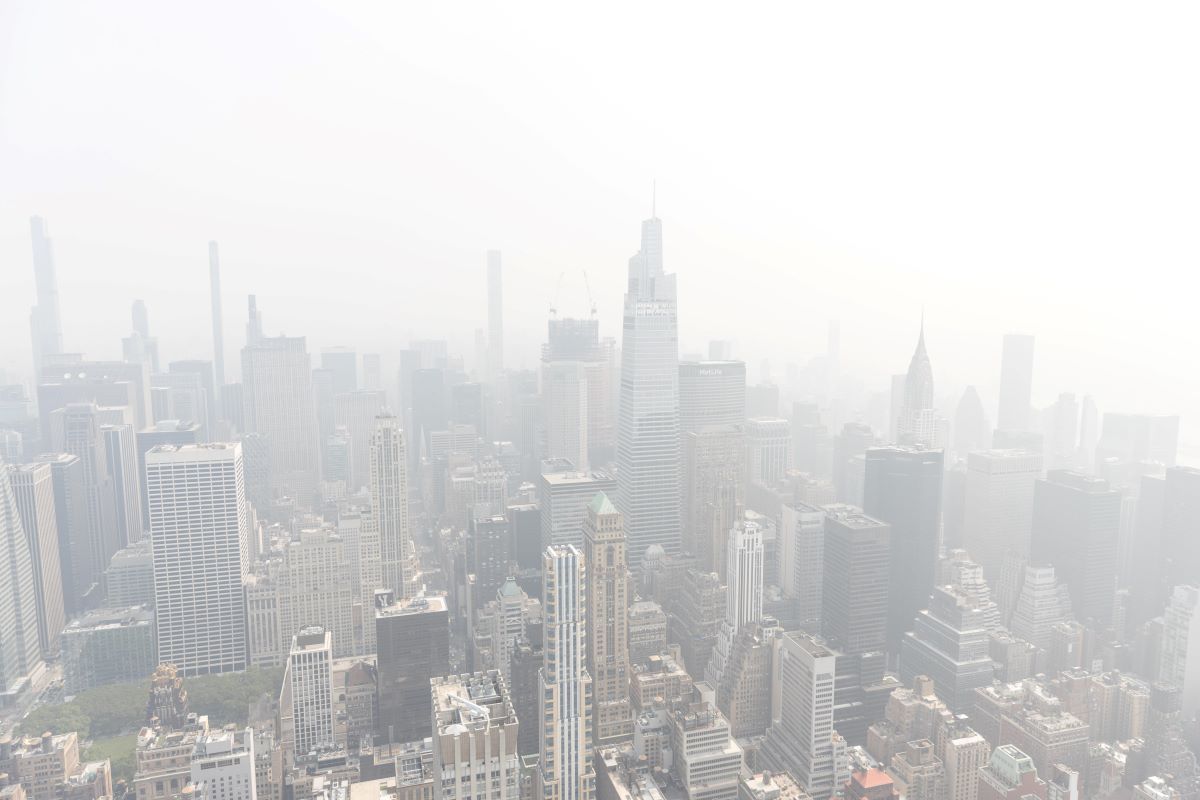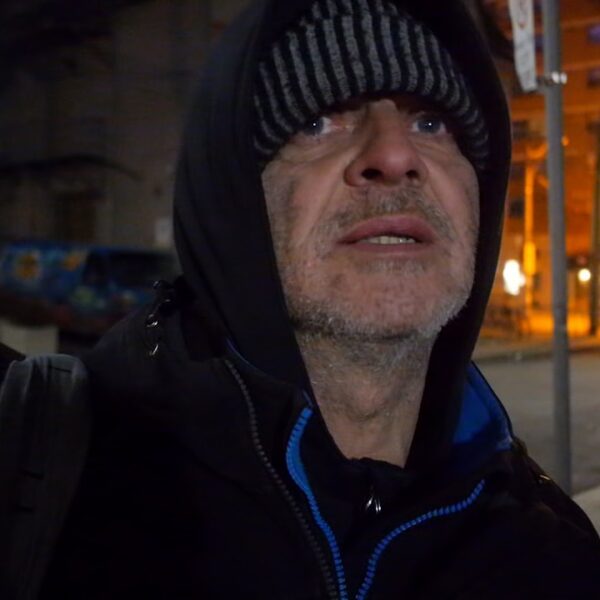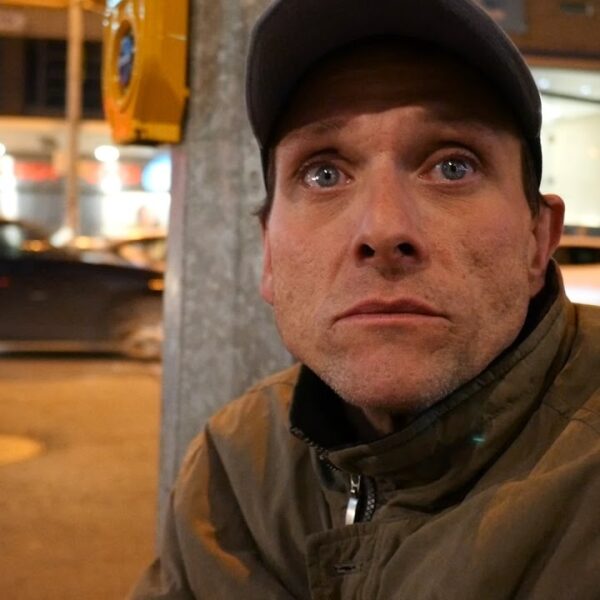Natural disasters wreak havoc on homeless populations across the globe, but this is only the beginning. As California haggles with homelessness amid rampant wildfires in the west coast region of the United States, Canada’s wildfires are threatening the Northeast, where homelessness and wildfire smoke are simultaneously rising.
It’s not a question of whether these wildfires will adversely affect the nation’s growing homeless population. It is only a question of how bad things might get.
New York City, 2023: The Big Apple is Covered in a Toxic Yellow Haze
In early June 2023, social media was littered with a bizarre array of photos depicting a very unusual weather phenomenon.
Netizens liked and shared the peculiar snapshots of New York City’s skyline, which was draped in a haunting yellow haze. The sun rose through the smoky mist that grew with the day, eventually covering a vast region of the East Coast and stretching through to the Midwest of America.
By evening, the apocalyptic hue had drifted over more than a third of the United States, affecting approximately 120 million people.
While it made for a moment of virality and a collection of captivating pictures, the sunshiny mist was as toxic as it was beautiful. According to CNN News, the polluted fog created very unhealthy levels of air quality in all of the following places:
- New York
- Pennsylvania
- Iowa
- Wisconsin
- Illinois
- North Carolina
- Virginia
- Delaware
- Missouri
- Minnesota
- Michigan
- Indiana
- Ohio
- Delaware
The Haze Was Coming from Canada’s Wildfires
Hysteria set in when it was revealed that the thick, polluted fog was actually wildfire smoke drifting over, not from a nearby city or state but rather from a neighboring country – Canada.
As it turns out, the Land of the Maple Leaf is grappling with its worst year for wildfires on record, and the smoke is so strong it is reaching America.
Wildfire Smoke Creates Hazardous Air Quality for Millions of People
In the blink of an eye, the air quality on the East Coast of the United States was deemed the lowest on planet Earth. Urgent warnings were issued.
The CDC warned that microscopic particles within the smoke seriously threatened people’s physical health and well-being. Millions of people were shuttered into their homes, taking heed of government advice and the subsequent warnings to remain indoors.
But what about the people who do not have homes? What is to come of them as the climate crisis continues escalating, as wildfires burn from one corner of the globe to the next?
Wildfires from Canada Will Negatively Impact People Enduring Homelessness on the East Coast
Just as the billowing wildfires in California have created homelessness and harmed those already experiencing it, wildfires from Canada will have the same negative impact in the Midwest and Northeast.
Described by the CDC as “a mix of gases and fine particles,” wildfire smoke can adversely affect health, causing all of the following physical ailments:
- Shortness of breath
- Headaches
- Chest pain
- Irritation in the eyes
- Asthma attacks
- Accelerated heartbeat
- Exhaustion and more
The afflictions listed above are examples of the immediate effects of inhaling wildfire pollutants. Worse still, scientists are unsure of the long-term effects, particularly for lengthy exposure.
According to CBC Radio, research suggests that long-term exposure could increase the risk for certain cancers, including brain and lung tumors. A separate study even projects that long-term exposure to wildfire smoke and ash could hinder cognitive abilities.
This is particularly important when discussing the unhoused community, which is already at an elevated risk of contracting cancer and suffering from mental health issues.
Unhoused People are Already at a Higher Risk of Contracting Illnesses and Dying from Treatable Diseases
The deleterious reality of lacking access to healthcare, combined with not having a stable place to live, puts people who are unhoused at a higher risk of contracting illnesses and dying from treatable diseases. When wildfire smoke comes billowing into the picture, this quite literally adds fuel to the fire.
As the climate crisis looms, the threat of death or serious illness is ever-present in the homeless community. Furthermore, in the wake of rising smoke and ashes, these natural disasters can create even more homelessness as people all across the globe become displaced.
In a recent interview with ABC News, the director of the U.S. Interagency Council on Homelessness, Jeff Olivet, shed some light on the subject, stating:
“When you have no home, no shelter, no money, no access to a safe indoor place, there is nowhere to go, and it is our responsibility to ensure the safety of everyone in our communities.”
Talk to Your Legislators About Drafting Laws that Make Housing a Human Right
As the climate crisis rages on, it will undoubtedly cause homelessness and exacerbate the situation of being unhoused. The Earth is literally on fire, yet millions of Americans are forced out onto the piping-hot city streets each year.
Homelessness is already coming up in courtrooms and at legislative tables nationwide. But the push to criminalize and exploit members of this vulnerable community outweighs housing advocacy and support. Please urge your local legislators to draft laws that make housing a human right. That way, the next time the oxygen is on red, everyone can take refuge in their homes.













